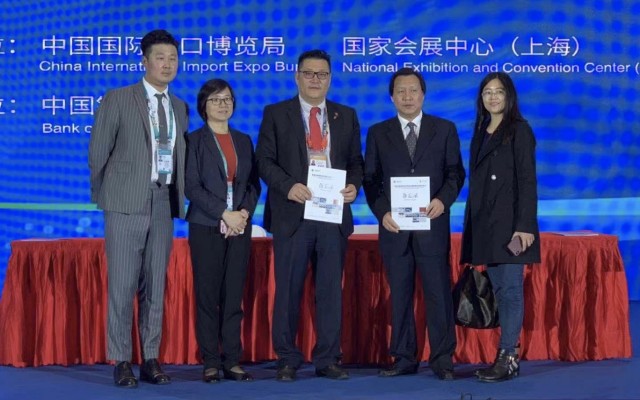The Food Revolution Group signs distribution deal with Chinese oil giant Sinopec

The Food Revolution Group expects canola oil distribution to commence in early 2019 once it receives China Inspection and Quarantine Certification.
Food processing company The Food Revolution Group (ASX: FOD) is making further progress in exploring opportunities for growth in the functional food, beverage and nutraceutical markets in key international markets such as China.
This morning, The Food Revolution Group said it has signed a memorandum of understanding (MoU) with Sinopec, the world’s largest oil refining, gas and petrochemical conglomerate.
Sinopec conducts a swathe of activities including oil and gas exploration, refining and marketing, production and sales of petrochemicals, as well as, the export and import of crude oil, natural gas and refined oil products.
Under the terms of the deal, the two companies have agreed to negotiate a distribution agreement whereby Sinopec will sell The Food Revolution Group’s Australian canola oil products produced across its network of more than 35,000 petrol and convenience outlets in China.
Meanwhile, The Food Revolution Group has said it will produce canola oil products under its proprietary Australia’s Garden brand.
Deal-making expo
According to The Food Revolution Group, the deal came about during last week’s China International Import Expo in Shanghai where the company presented its product range and was able to provide samples to the thousands of people that attended.
The company said the expo was a “great success” with multiple potential customers sampling its products.
Some of the notable visitors mentioned by The Food Revolution Group were Sinopec, JD.com, China’s largest retailer Bailain group, Costco China and WA HA HA, China’s largest beverage company.
The Food Revolution Group chairman Norman Li said the company received “significant interest” in its products at the expo and the MoU with Sinopec was the first of, what he expects to be, a series of distribution deals with large Chinese corporations.
One of the most keenly anticipated developments is The Food Revolution Group’s discussions with Bailian Group, a large state-owned enterprise based in Shanghai. Bailian operates department stores and sells a wide range of products including groceries, cosmetics, apparels, clothing and home appliances.
A firm deal with both Sinopec and Bailian could potentially boost The Food Revolution Group’s sales significantly, although the company has yet to announce binding deals with either entity, despite today’s MoU with Sinopec.

Left to right: Jeff Zhang, Bank of China Sydney; Li Shuping, Bank of China Deputy Director; Norman Li, The Food Revolution Group; Mr. Tao Zeng, Vice President of Sinopec Group Sales Ltd Beijing Branch; staff of Sinopec.
“This is a great relationship for us to build on, not only for distribution of canola oil but also for our functional food and beverage range over the longer term. A landmark deal such as this will put Food Revolution on the map in China and position the company to generate further distribution deals with large Chinese companies,” said Norman Li, chairman of The Food Revolution Group.
“We will now work on a formal agreement with Sinopec and we expect to start shipping the product soon,” he added.
In order to get its canola oil products onto store shelves in China, The Food Revolution Group is still required to complete Chinese import and quarantine certification conditions – a process it achieved for its fruit farm juice range in merely 10 days.
According to the food processing company, it plans to finalise a product range with Sinopec in the coming weeks including setting interim “volume and price expectations” with products expected to be ready for shipment “in early 2019”.
A revolution in food
The Food Revolution Group uses a combination of conventional juice processing equipment and custom-developed equipment and processes to manufacture a range of high-quality juices, fibres, infused fruits and fruit waters that are sold as branded products or ingredients to customers domestically and overseas.
The company uses a range of processing technologies, including what’s known as Current Counter Extraction (CCE) technology which was developed in conjunction with Australia’s CSIRO to extract juice from fruit and vegetables.
